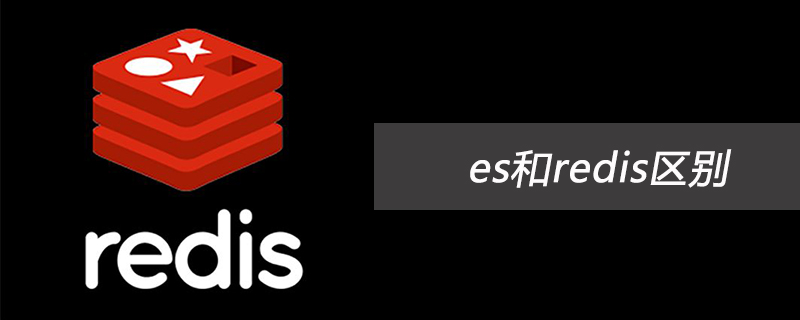
When the memory used by redis exceeds the set maximum memory, the key elimination mechanism of redis will be triggered. There are 6 elimination strategies in redis 3.0:
noeviction: Do not delete the policy. When the maximum memory limit is reached, if more memory needs to be used, an error message is returned directly. (Redis default elimination strategy)
allkeys-lru: Prioritize deleting the least recently used (LRU) key among all keys. (Recommended learning: Redis Video Tutorial)
allkeys-random: Randomly delete some keys among all keys.
volatile-lru: Prioritize deleting the least recently used (LRU) key among the keys with a timeout (expire) set.
volatile-random: Randomly delete some keys among the keys with a timeout (expire) set.
volatile-ttl: Prioritize deleting keys with a short remaining time (time to live, TTL) among keys with a timeout (expire) set.
Scenario:
There are 10 million data in the database, but only 500 thousand data in redis. How to ensure that the 100 thousand data in redis are hot data?
Plan:
Limit the memory occupied by Redis. Redis will leave hot data in the memory according to its own data elimination strategy. So, calculate the approximate memory occupied by 50W data, then set the Redis memory limit, and set the elimination strategy to volatile-lru or allkeys-lru.
Set the maximum memory occupied by Redis:
Open the redis configuration file and set the maxmemory parameter. maxmemory is the bytes byte type
# In short... if you have slaves attached it is suggested that you set a lower # limit for maxmemory so that there is some free RAM on the system for slave # output buffers (but this is not needed if the policy is 'noeviction'). # # maxmemory <bytes> maxmemory 268435456
Settings Expiration policy:
maxmemory-policy volatile-lru
For more Redis-related technical articles, please visit the Redis Getting Started Tutorial column to learn!
The above is the detailed content of How to ensure that all hot data in redis is. For more information, please follow other related articles on the PHP Chinese website!
 es和redis区别Jul 06, 2019 pm 01:45 PM
es和redis区别Jul 06, 2019 pm 01:45 PMRedis是现在最热门的key-value数据库,Redis的最大特点是key-value存储所带来的简单和高性能;相较于MongoDB和Redis,晚一年发布的ES可能知名度要低一些,ES的特点是搜索,ES是围绕搜索设计的。
 一起来聊聊Redis有什么优势和特点May 16, 2022 pm 06:04 PM
一起来聊聊Redis有什么优势和特点May 16, 2022 pm 06:04 PM本篇文章给大家带来了关于redis的相关知识,其中主要介绍了关于redis的一些优势和特点,Redis 是一个开源的使用ANSI C语言编写、遵守 BSD 协议、支持网络、可基于内存、分布式存储数据库,下面一起来看一下,希望对大家有帮助。
 实例详解Redis Cluster集群收缩主从节点Apr 21, 2022 pm 06:23 PM
实例详解Redis Cluster集群收缩主从节点Apr 21, 2022 pm 06:23 PM本篇文章给大家带来了关于redis的相关知识,其中主要介绍了Redis Cluster集群收缩主从节点的相关问题,包括了Cluster集群收缩概念、将6390主节点从集群中收缩、验证数据迁移过程是否导致数据异常等,希望对大家有帮助。
 详细解析Redis中命令的原子性Jun 01, 2022 am 11:58 AM
详细解析Redis中命令的原子性Jun 01, 2022 am 11:58 AM本篇文章给大家带来了关于redis的相关知识,其中主要介绍了关于原子操作中命令原子性的相关问题,包括了处理并发的方案、编程模型、多IO线程以及单命令的相关内容,下面一起看一下,希望对大家有帮助。
 Redis实现排行榜及相同积分按时间排序功能的实现Aug 22, 2022 pm 05:51 PM
Redis实现排行榜及相同积分按时间排序功能的实现Aug 22, 2022 pm 05:51 PM本篇文章给大家带来了关于redis的相关知识,其中主要介绍了Redis实现排行榜及相同积分按时间排序,本文通过实例代码给大家介绍的非常详细,对大家的学习或工作具有一定的参考借鉴价值,希望对大家有帮助。
 实例详解Redis实现排行榜及相同积分按时间排序功能的实现Aug 26, 2022 pm 02:09 PM
实例详解Redis实现排行榜及相同积分按时间排序功能的实现Aug 26, 2022 pm 02:09 PM本篇文章给大家带来了关于redis的相关知识,其中主要介绍了Redis实现排行榜及相同积分按时间排序,本文通过实例代码给大家介绍的非常详细,下面一起来看一下,希望对大家有帮助。
 一文搞懂redis的bitmapApr 27, 2022 pm 07:48 PM
一文搞懂redis的bitmapApr 27, 2022 pm 07:48 PM本篇文章给大家带来了关于redis的相关知识,其中主要介绍了bitmap问题,Redis 为我们提供了位图这一数据结构,位图数据结构其实并不是一个全新的玩意,我们可以简单的认为就是个数组,只是里面的内容只能为0或1而已,希望对大家有帮助。
 一起聊聊Redis实现秒杀的问题May 27, 2022 am 11:40 AM
一起聊聊Redis实现秒杀的问题May 27, 2022 am 11:40 AM本篇文章给大家带来了关于redis的相关知识,其中主要介绍了关于实现秒杀的相关内容,包括了秒杀逻辑、存在的链接超时、超卖和库存遗留的问题,下面一起来看一下,希望对大家有帮助。


Hot AI Tools

Undresser.AI Undress
AI-powered app for creating realistic nude photos

AI Clothes Remover
Online AI tool for removing clothes from photos.

Undress AI Tool
Undress images for free

Clothoff.io
AI clothes remover

AI Hentai Generator
Generate AI Hentai for free.

Hot Article

Hot Tools

SAP NetWeaver Server Adapter for Eclipse
Integrate Eclipse with SAP NetWeaver application server.

Dreamweaver Mac version
Visual web development tools

ZendStudio 13.5.1 Mac
Powerful PHP integrated development environment

Atom editor mac version download
The most popular open source editor

SublimeText3 Linux new version
SublimeText3 Linux latest version






